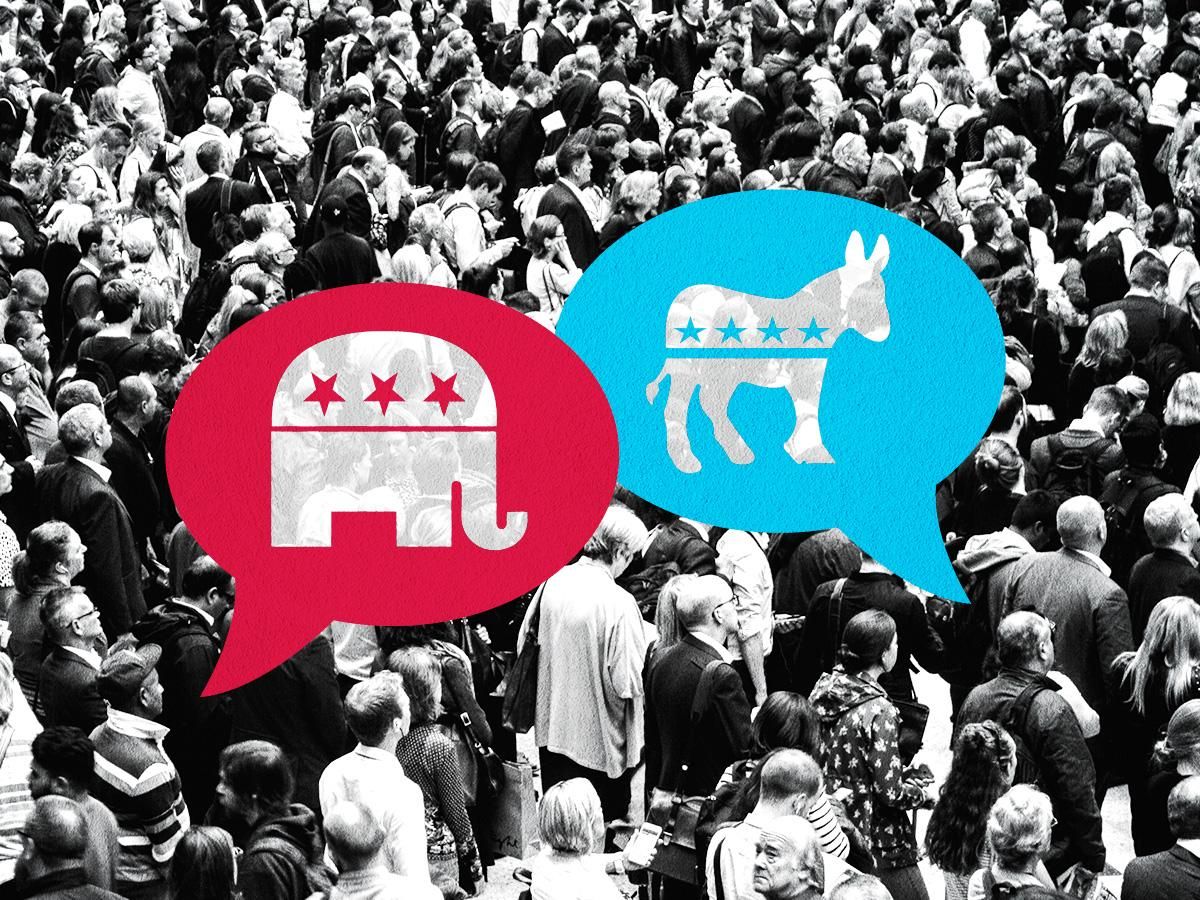Many pundits in the US have long declared the age of political bipartisanship dead. And in the age of QAnon, “lock her up,” and “defund the police,” it’s easy to see how they might have reached such a conclusion.
Still, as divided government returns to Washington – with the GOP now in control of the House of Representatives – it appears that the constant mudslinging between Democrats and Republicans is not necessarily appealing to American voters.
An exclusive new poll conducted by Maru Public Opinion and GZERO Media found that a narrow majority of Americans – both Republicans and Democrats – think divided government is better for the country. Of the randomly selected 1,517 American adults polled (estimated margin of error of +/- 2.5%), 51% said they prefer split government, meaning that both parties control one chamber of Congress each, or that control of the legislative and executive branches is split between the GOP and Dems.
Indeed, this sentiment is even stronger among Republican voters, with 32% of them saying it is better for one party to control both chambers of Congress compared to 52% of Dem-leaning voters who said they prefer unified government.
The thing with divided government is that it means that an increased number of divergent views will seek to shape the law-making process. In short, less law-making gets done. To make progress and overcome obstructionist efforts, compromise is key.
Still, with the awareness that less legislation will get passed by a divided government, voters polled by Maru still think this is the better way. Consider that 69% of those polled said that it’s more important for the new Congress to pass less legislation with bipartisan support than for one party to get more done without buy-in from the other side.
While that conciliatory sentiment might seem incongruous with what we’ve seen in US politics in recent years, it reflects the main takeaways of the recent midterm elections, when US voters mostly repudiated intransigent candidates on both sides of the aisle. Consider that 83% of polled voters said they are more likely to back a candidate who supports bipartisanship, a call backed by 79% of GOP voters and 88% of Dems. Interestingly, just 17% of those polled said they would be less likely to back a lawmaker who supports bipartisanship.
At a time when US politics is framed as a zero-sum game – with a legislative win for President Joe Biden often cast as a loss for the GOP – how then do we reconcile recent political trends with the poll’s findings? (In the GOP, for instance, lawmakers who bucked the party by speaking out against former President Donald Trump in the wake of the Jan. 6 riot on Capitol Hill were shunned.)
John Wright, Maru’s executive vice president, says that “the nature of US politics is most often the desire of opposing sides to want the other party to act in a bipartisan fashion to get things done to achieve their own ends.”
“Because of that built-in bias,” Wright explains, “the sentiment may be there for compromise, but it’s almost always a one-way street of expectation, so it rarely occurs.” Indeed, this view, whereby many lawmakers fear that compromise will lead to electoral backlash, helps explain why legislators on both sides of the aisle have doubled down on their positions on many divisive issues, like abortion, rather than seek a middle ground.
So with the 118th Congress having just been sworn in, what might we expect over the next two years? “Given the split between the House and the Senate for the next couple of years, especially with the run-up to the presidential election [in 2024], compromise may be almost impossible to find,” Wright says, suggesting that the recently passed $1.7 trillion spending bill is likely to be the last bit of compromise we see for some time.






